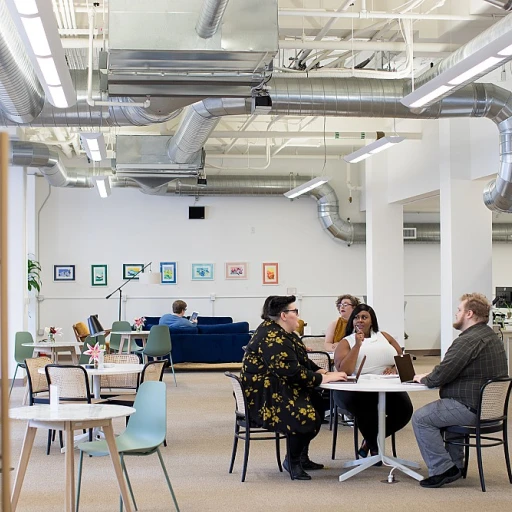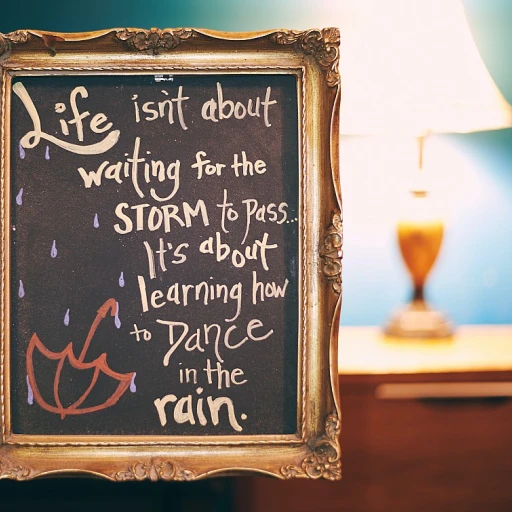
Understanding the Skills Gap
Grasping the Disconnect
In today’s rapidly evolving job market, the concept of a skills gap is garnering widespread attention. But what does it really signify? In essence, it refers to the disparity between the skills employers need and the capabilities that job seekers possess. This disconnect can stunt organizational growth and innovation, posing challenges for businesses across industries. Various factors contribute to this gap. Technological advancements often outpace traditional education systems, creating a demand for new skills that are not yet widely taught. Additionally, evolving business models require fresh approaches to problem solving and decision making. Critical thinking has emerged as a vital component in bridging this divide. Employers increasingly prize the ability to analyze data, evaluate complex problems, and make informed decisions. Unfortunately, these thinking skills are frequently underdeveloped in the current workforce. Organizations, therefore, seek candidates who demonstrate strong critical thinking abilities during interviews. Recruiters craft thoughtful interview questions to assess a candidate's ability to address complex problems. They aim to understand how potential employees approach critical situations, evaluate information, and collaborate with team members to make well-rounded decisions. Recognizing the need for effective mentorship programs is another crucial step in addressing the skills gap. Both individual and organizational growth benefit from guided learning environments where critical skills are honed. Ultimately, bridging this gap requires a multifaceted approach. Companies should invest in continuous training and adapt their hiring practices to prioritize critical thinking and decision making skills. By doing so, they can cultivate a workforce equipped to navigate the complex challenges of the modern world.The Role of Critical Thinking in the Workplace
The Importance of Critical Thinking in Modern Workplaces
In today’s rapidly evolving job market, critical thinking has emerged as a cornerstone skill that employers are actively seeking. As organizations face increasingly complex problems and dynamic environments, the ability to make informed decisions becomes crucial. Critical thinking empowers employees to analyze data, weigh pros and cons, and approach challenges with a logical mindset.
Critical thinking is not just about solving problems; it’s about understanding the process of decision making. This involves evaluating the available information, considering potential outcomes, and making data-driven choices that align with long-term goals. In essence, it’s about enhancing the ability to describe situations clearly and make decisions that benefit the organization as a whole.
Enhancing Team Dynamics Through Critical Thinking
When team members possess strong thinking skills, they contribute to a more cohesive and effective work environment. They can describe time when they successfully navigated a complex problem, showcasing their candidate ability to think critically. This not only aids in personal growth but also enhances team collaboration, as individuals are better equipped to communicate their ideas and questions effectively.
Moreover, critical thinking fosters a culture of continuous improvement. By encouraging employees to ask critical thinking interview questions and engage in reflective practices, organizations can drive innovation and adaptability. This is particularly important in industries where problem solving is a daily requirement, and the ability to make time decisions is paramount.
For those looking to bridge the skills gap, understanding the role of critical thinking in the workplace is essential. By focusing on this key competency, both employers and employees can work towards a more resilient and adaptable workforce. For further insights on how to develop these skills, consider exploring insightful questions to ask your mentor that can guide your journey in mastering critical thinking.
Crafting Effective Critical Thinking Interview Questions
Formulating Key Interview Queries
Developing effective interview questions is integral to identifying a candidate's ability for critical thinking. These questions should be designed to unveil how candidates approach complex problems, assess data, and make informed decisions. By concentrating on specific aspects of problem solving and decision-making, employers can gain insights into candidates' thinking processes and their capacity to contribute to team success.- Open-Ended Questions: Instead of questions that require a yes or no answer, opt for open-ended ones. For instance, "Describe a time you had to solve a complex problem. What was your approach, and what decision did you make?" Such questions encourage candidates to share detailed accounts that reflect their thinking skills and decision-making processes.
- Decision-Making Scenarios: Present scenarios that require candidates to make critical choices. An example can be, "Imagine you are managing a project with conflicting deadlines. How would you prioritize and address the situation?" This query helps gauge the candidate's ability to make long-term, data-driven decisions.
- Data Analysis: Questions related to data interpretation and application in the real world help in evaluating a candidate's analytical abilities. Ask something like, "Discuss a situation where data informed your decision-making process. What data did you use, and what was the outcome?" This prompts candidates to reflect on an example where they effectively used data in problem-solving.
Examples of Critical Thinking Interview Questions
Illustrating Critical Thinking Through Practical Examples
The next step in bridging the skills gap is constructing interview questions that effectively evaluate a candidate's critical thinking ability. The aim is to frame questions that not only elicit straightforward answers but also examine the reasoning process and decision-making skills of candidates. Here's how you can approach this:- Scenario-Based Problems: Present candidates with a complex problem requiring logical reasoning and decision making. Ask them to describe a situation where they had to analyze data and make an informed decision. This will demonstrate their ability to handle real-world challenges.
- Data-Driven Questions: These questions necessitate the candidate's ability to use data effectively. For example, provide a scenario that includes data points and ask candidates to formulate a plan or solution. Their response will reveal their proficiency in data analysis and problem solving.
- Balancing Pros and Cons: Inquire candidates to weigh the advantages and disadvantages of a decision they previously made in a professional setting. This approach helps in assessing their critical thinking skills in evaluating various factors before arriving at a conclusion.
- Describe Time Under Pressure: To gauge the candidate's ability to make prompt decisions, ask them to describe a time when they had to make a quick decision to resolve an issue. This question tests their capacity for timely problem solving while maintaining sound judgment.
Evaluating Responses to Critical Thinking Questions
Assessing Candidates’ Abilities Through Their Responses
Evaluating how candidates respond to critical thinking interview questions is an essential aspect of bridging the skills gap. When assessing their answers, focus on their approach to problem solving and decision making.- Logical Reasoning: Determine whether the candidate uses logical reasoning to break down complex problems. Do their responses demonstrate a clear, step-by-step problem-solving process? An example answer should illustrate their methodical approach.
- Data-Driven Decisions: It's crucial to evaluate if their decision making is informed by data. Ask questions that require candidates to describe a situation where they had to make a data-driven decision. This highlights their ability to analyze information critically.
- Handling Complex Problems: Consider their adeptness at managing complex situations. Do they effectively weigh the pros and cons before arriving at a conclusion? An example question could prompt them to describe a time they faced a major challenge and how they approached it.
- Team Collaboration: Critical thinking doesn't happen in isolation. Evaluate if candidates discuss the example time when they collaborated with team members to solve a problem. This shows how their skills translate into the workplace environment.
Training and Development to Close the Skills Gap
Fostering the Journey to Skills Enhancement
To effectively bridge the skills gap, it's crucial for organizations to invest in comprehensive training and development programs. This investment enhances critical thinking, problem-solving, and decision-making abilities, empowering candidates and employees to navigate complex work scenarios. Identifying Relevant Training Approaches When looking to develop employees' thinking skills, organizations should consider both formal and informal methods. Here's a closer look:- Workshops and Seminars: Conduct focused sessions to address specific thinking skills and improve team members' critical thinking and data-driven approaches.
- Mentorship Programs: Encourage a culture of learning where experienced colleagues describe situations they've handled, imparting their practical insights to newer team members.
- Online Learning Platforms: Offer access to digital resources which candidates can use at their own pace, allowing for a flexible and scalable training process.
- Real-world Projects: Enable candidates to manage real projects, encouraging them to describe times they applied critical thinking to make informed decisions.
- Pros and Cons Analysis: Encourage candidates to reflect on their logical reasoning while solving complex problems, discussing potential improvements.
- Reflective Sessions: Schedule regular meetings where employees discuss interview questions they faced and dissect how their problem-solving strategies have evolved.
- Performance Reviews: Conduct comprehensive evaluations focusing on examples of candidate ability in decision making and critical thinking situations.













